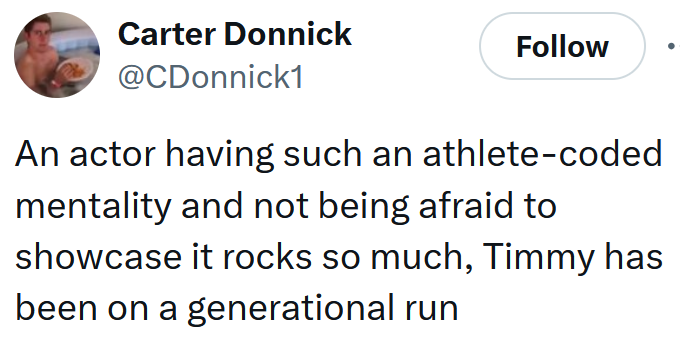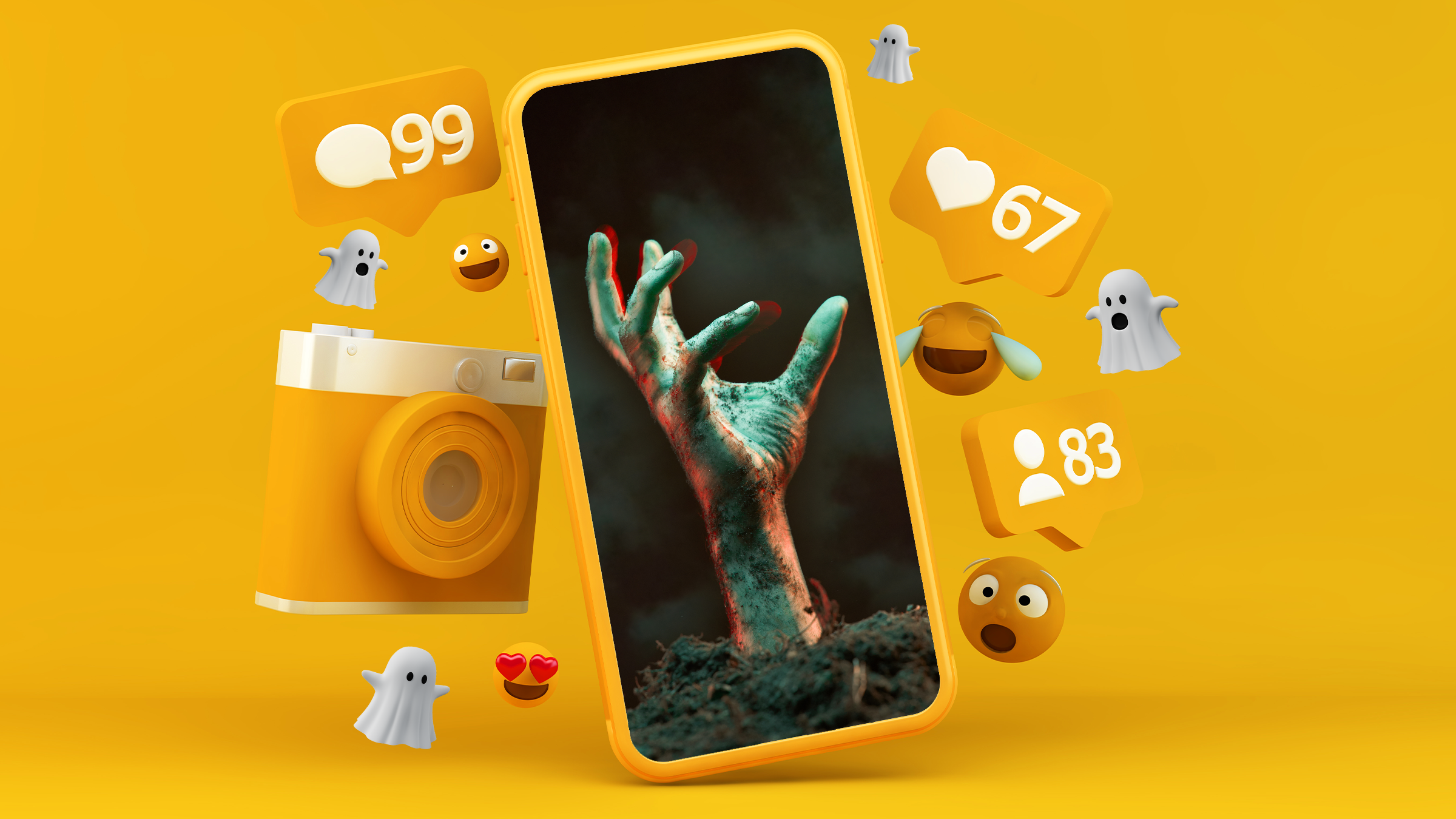After years of treating sincerity as a cringy punchline, the culture appears to be warming up to earnest "tryhard" effort again. From zeitgeisty celebrities like Doechii and Timothée Chalamet delivering heartfelt awards show speeches, to a growing number of Gen Zers unironically embracing niche hobbies and self-expression, the tryhard is so, so back. Cringe culture, which turned passion and authenticity into a meme, is quickly losing its grip. Replacing it is a new cultural trend: throwing your entire, original self into something with unabashed pride.
Taylor Swift signaled cringe culture was over in 2022, so...it's officially over. Enter the era of the tryhard.
What is a tryhard?
The term "tryhard" first emerged from gamer culture to describe someone who tries too hard to be good at video games instead of just having fun. This is especially true when the over-exertion leads to failure or bad behavior such as yelling at teammates. During the 2010s, the definition broadened to include anyone who tries hard at anything.
This coincided with the rise of "cringe culture." As social media consumed all aspects of life, younger generations endured intense scrutiny from peers. Suddenly, millions of people could be witness to any embarrassing moment, especially passionate expression or personal failures. Posting one's artwork or outfits was fun, but carried the risk of extreme levels of criticism.
The only defense from this social threat was ironic detachment. Pretending not to care became a shield—but it's a heavy one to carry.
'I'm really in pursuit of greatness'
Doechii became the third woman in history to win the Grammy for Best Rap Album on Feb. 3, 2025. Instead of minimizing her hard work during her acceptance speech, she stressed how much of herself she put into the album "Alligator Bites Never Heal."
"I put my heart and my soul into this mixtape," she said. "I bared my life. I went through so much. I dedicated myself to sobriety, and God told me that I would be rewarded and that he would show me just how good it can get."
Later that month, on Feb. 23, Timothée Chalamet became the youngest person ever to win the SAG Awards' Best Actor in a Leading Role title. During his acceptance speech, he also diverged from the norm by laying out just how much effort he put into playing Bob Dylan in A Complete Unknown.
"I know the classiest thing would be to downplay the effort that went into this role and how much this means to me, but the truth is, this was five and a half years of my life," he said. "I poured everything I had into playing this incomparable artist."
Naively I didn’t expect #TimothéeChalamet’s speech to become controversial.
— Luiz Fernando (@Luiz_Fernando_J) February 24, 2025
But once again talking about sincere & coherent speeches, in a society so used to celebrate mediocrity & false modesty, it’s refreshing to see someone who works hard and goes out of their way to put… pic.twitter.com/n1DNYc9sAn
"I know we’re in a subjective business, but the truth is, I’m really in pursuit of greatness. I know people don’t usually talk like that, but I want to be one of the greats."
Rather than calling these two incredible artists "cringe," audiences responded positively to their speeches. Social media users called their earnestness "refreshing" and those who embrace cringe culture "miserable losers."

"An actor having such an athlete-coded mentality and not being afraid to showcase it rocks so much, Timmy has been on a generational run," wrote X user @CDonnick1.
Being a tryhard is cool again
On Instagram, brand strategy consultant Eugene Healey posted a video on March 27 explaining the rise and fall of cringe culture. He argued that the "surveillance state" of the social media era made Gen Z a socially and behaviorally conservative generation. And it started with Millennials.
"When young people look at how Millennials themselves were ridiculed for their earnest displays of self-expression, they learned that sincerity could be turned into a meme and that enthusiasm could be punished with ridicule," he says.
Healey uses the example of the Crocs and Jibbitz trend as evidence that Gen Z craves self-expression, but because of cringe culture, had to hide it under layers of irony. The footwear was supposed to be "ugly," so they could do what they wanted without fear of judgment. He even suggests that Zoomers are jealous of Millennials for getting to indulge in "all the sins you never dared to commit."
He also points to celebrities unabashedly pursuing passion and greatness as evidence that cringe culture is dying. That, and the fact that brands are now embracing ironic detachment as part of their social media personas. That's always the cultural endpoint. The brand strategy consultant would know.
Taylor Swift says to embrace cringe
Signals that cringe culture was dying may have started back in 2022 with Taylor Swift herself. On May 18 of that year, she gave a commencement speech at New York University and encouraged graduates to stop running from the cringe and embrace their tryhard sides, referencing her 1950s housewife phase from 2012.
"Learn to live alongside cringe," she advised. "No matter how hard you try to avoid being cringe, you will look back on your life and cringe retrospectively. Cringe is unavoidable over a lifetime. Even the term ‘cringe’ might someday be deemed ‘cringe.’"
Is today that day? Let's hope so. Life's too messed up right now to pretend not to care.
The Daily Dot has reached out to @eugbrandstrat for comment via Instagram.
The internet is chaotic—but we’ll break it down for you in one daily email. Sign up for the Daily Dot’s web_crawlr newsletter here to get the best (and worst) of the internet straight into your inbox.






